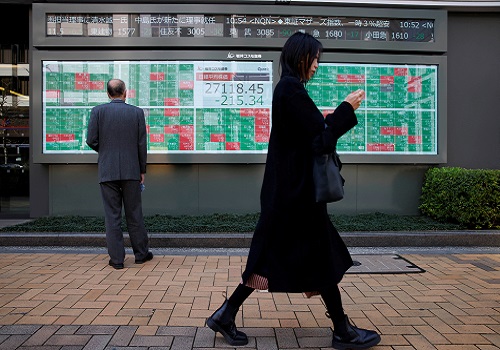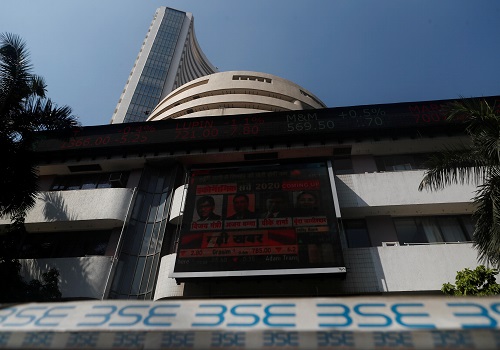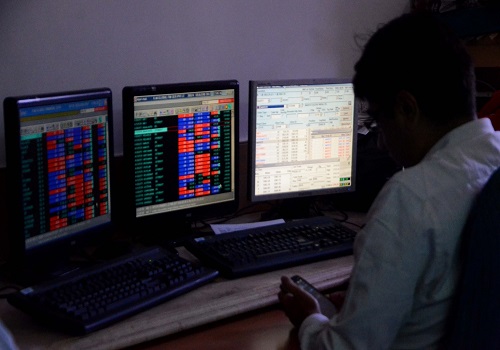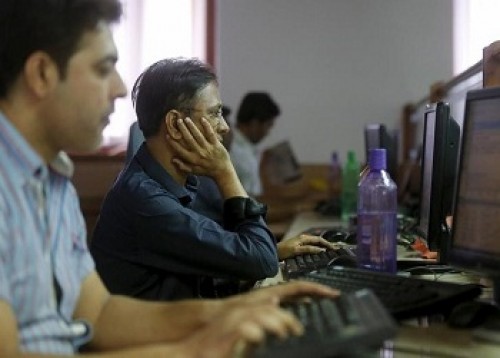Markets once again settle in red zone; Nifty slips below 15,800 mark
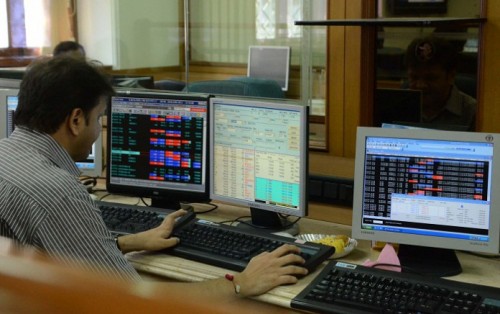
Follow us Now on Telegram ! Get daily 10 - 12 important updates on Business, Finance and Investment. Join our Telegram Channel
Extending their losing streak for second straight session, Indian benchmark indices ended the Monday’s session on disappointing note, with Sensex and Nifty breaching their crucial psychological 52,900 and 15,800 levels, respectively. Markets started the week with a sharp cut and remained under pressure throughout the session, as investors awaited inflation data later in the day, while global markets plunged over fears of aggressive policy tightening by the US Federal Reserve later this week. The market participants remained worried as RBI data showed that after rising for two consecutive weeks, the country’s foreign exchange reserves declined by $306 million to $601.057 billion in the week ended June 3. Besides, persistent selling by foreign portfolio investors (FPIs) dampened investors’ sentiment. FPIs have been net sellers for eight consecutive month, offloading Rs 13,888 crore worth of equities so far in June. With this, the FPIs have sold Rs 1,81,043 worth of equities so far this year.
Markets were trading in deep sea of red in late afternoon session amid reports that with Chief Economic Advisor V Anantha Nageswaran citing the IMF forecast that the Indian economy would cross $5 trillion by 2026-27, leader P Chidambaram said the goal of a USD 5 trillion GDP appears to be a case of 'shifting goalposts' as the original target year was 2023-24. Market participants overlooked Chief Economic Advisor (CEA) Anantha Nageswaran’s statement that India has shown exemplary resilience in recovery from the COVID-19 pandemic crisis. He added all major activities and parameters of the economy have crossed their pre-COVID levels, and it is now enjoying macroeconomic tailwinds. Traders also paid no heed towards NITI Aayog Vice Chairman Suman Bery’s statement that India's macroeconomic position relative to emerging economies appears good, and the coming decade appears promising for sustained economic growth for the country.
On the global front, Asian markets settled sharply lower on Monday as data showing a bigger than expected surge in U.S. inflation in May raised concerns about growth and the outlook for interest rates to trigger a sell-off in the markets. The imposition of fresh lockdown measures in several parts of Shanghai also weighed on sentiment. European markets were trading lower, as Weak UK growth data raised concerns about the economic outlook in the region. The Office for National Statistics said U.K. GDP fell unexpectedly by 0.3 percent month-on-month in April, faster than the 0.1 percent drop in March. This was the second consecutive contraction. GDP was forecast to grow 0.1 percent.
Finally, the BSE Sensex fell 1456.74 points or 2.68% to 52,846.70 and the CNX Nifty was down by 427.40 points or 2.64% to 15,774.40.
The BSE Sensex touched high and low of 53,207.54 and 52,527.08, respectively. There were 1 stocks advancing against 29 stocks declining on the index.
The broader indices ended in red; the BSE Mid cap index fell 2.73%, while Small cap index was down by 3.15%.
The top losing sectoral indices on the BSE were IT down by 3.92%, TECK down by 3.45%, Metal down by 3.39%, Industrials down by 3.35%, Finance down by 3.17%, while there were no gaining sectoral indices on the BSE.
The top gainers on the Sensex were Nestle up by 0.46%. On the flip side, Bajaj Finserv down by 7.02%, Bajaj Finance down by 5.44%, Indusind Bank down by 5.27%, Tech Mahindra down by 4.84% and ICICI Bank down by 4.46% were the top losers.
Meanwhile, Chief Economic Advisor (CEA) Anantha Nageswaran said India has shown exemplary resilience in recovery from the COVID-19 pandemic crisis. He added all major activities and parameters of the economy have crossed their pre-COVID levels, and it is now enjoying macroeconomic tailwinds.
Nageswaran said quick and precise steps have been taken by the government at the policy level, which was supported by the Reserve Bank of India’s timely interventions. He said compared to developing and developed countries, the Indian economy is firm and stable in terms of various fundamentals. He also said ‘the developed world is moving from low inflation to high inflation and it is in such times that we have managed to keep inflationary pressure under check’.
The CEA said he is hopeful that as per the projections of the International Monetary Fund, India is heading towards achieving a GDP size of $5 trillion by 2027. He added ‘today, we have a strong revival of private investment, and the country has comfortable forex reserves to withstand turbulence in the international currency market. The exponential growth of digital payments in India during the last few years is an indication enough of fast changes in the informal sector.’
The CNX Nifty traded in a range of 15,886.15 and 15,684.00. There were 2 stocks advancing against 48 stocks declining on the index.
The top gainers on Nifty were Nestle up by 0.49% and Bajaj Auto up by 0.08%. On the flip side, Bajaj Finserv down by 6.74%, Bajaj Finance down by 5.21%, Tata Motors down by 5.03%, Indusind Bank down by 4.98% and Hindalco down by 4.86% were the top losers.
European markets were trading lower; UK’s FTSE 100 decreased 129.18 points or 1.77% to 7,188.34, France’s CAC fell 134.81 points or 2.18% to 6,052.42 and Germany’s DAX was down by 280.80 points or 2.04% to 13,481.03.
Asian markets settled sharply lower on Monday after an unexpected jump in US inflation data reinforced bets on steep interest rate hikes by the US Federal Reserve and an impending recession. Moreover, a flare-up in Covid-19 cases in China’s capital Beijing also weighed on market sentiments. In Beijing, authorities raced to contain a Covid-19 outbreak on Monday traced to a raucous 24-hour bar known for cheap liquor and big crowds, with millions facing mandatory testing and thousands under targeted lockdowns. Japanese shares dropped after US stocks posted their biggest weekly drop since January on last Friday overnight, while investors were awaiting the interest rate decision by the Bank of Japan due on Friday. Confidence among large Japanese manufacturers weakened further in the second quarter, business outlook survey results from the Ministry of Finance showed.
Above views are of the author and not of the website kindly read disclaimer


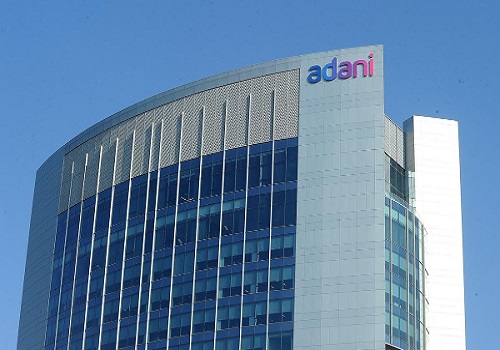







Tag News

Weekly Market Analysis : Markets strengthened recovery and gained nearly 2% in the passing w...








